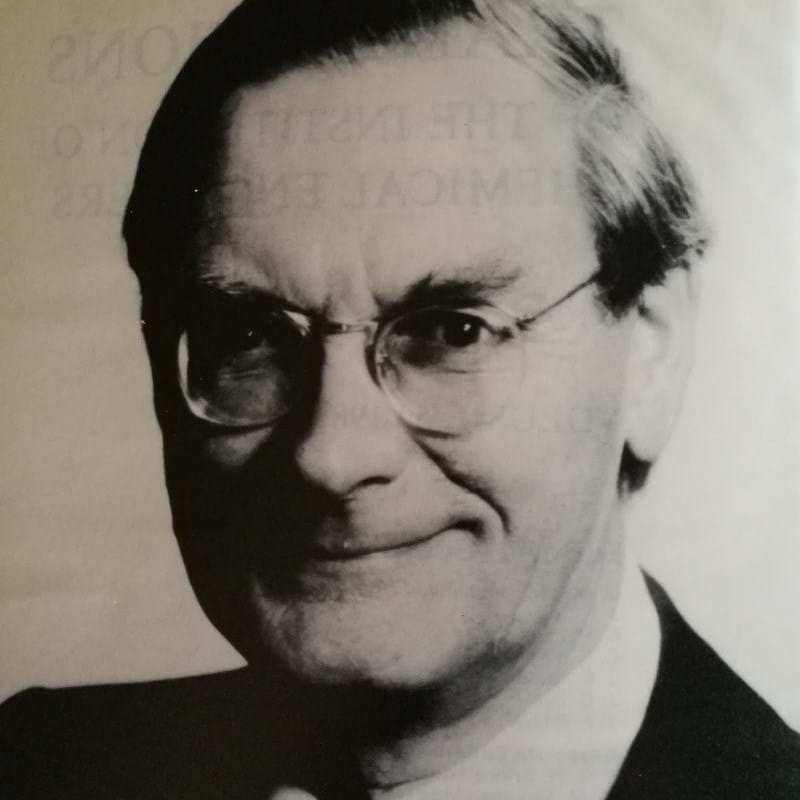
Peter Noel Rowe: 1981–1982
Peter Rowe was born on Christmas Day 1919 in Preston, Lancashire and was educated at Preston Grammar School. On leaving school he was first employed as a technician and then served in the RAF from 1940 to 1946. It was during this period that his postings in Europe confirmed his enjoyment of travel and he also took the opportunity to go into higher education, obtaining by part-time study an HNC in mechanical engineering at Liverpool Technical College.
It was after the war that he moved into chemical engineering as an undergraduate at Manchester College of Technology from 1946 to 1949, where he obtained a 2nd class honours degree. From Manchester he moved to Imperial College to study for a PhD with D M Newitt. He investigated supersonic flow through rocket nozzles and continued to do so until 1958 as a Ministry of Supply Research Assistant.
In 1958 he moved to the Atomic Energy Research Establishment at Harwell to take on the role of Principal Scientific Officer (under A S White and J B Lewis). This was the move that finally saw him working in the field of chemical engineering in which he rapidly established a leading international reputation.
Peter Rowe made his name by developing a variety of experimental techniques for unravelling the mysteries of gas-fluidised beds. His ability to devise novel experiments (whether sophisticated or simple) and to use suitable statistical techniques to analyse the results, the judgement to discern when sophistication was required and when to go for simplicity were the hallmarks of Peter Rowe's contribution to chemical engineering methodology.
In 1965 he was appointed Ramsay Memorial Professor of Chemical Engineering and Head of Department at University College London. He began by lecturing first and second year students, which was a complete innovation, and then encouraged a revamping of the whole BSc course, which in essence had not changed since 1937. Many other areas benefited from his judgement and enthusiasm: he greatly encouraged biochemical engineering long before it was fashionable; young staff were encouraged to attend conferences and apply for research grants; he obtained a markedly increased budget for the department and, in a short time, doubled the number of staff.
His contribution UCL and to fluidised bed research was immense, but so too was his contribution to the profession. He became a Fellow of the Institution in 1961 and has since served on 10 committees, many of them as Chairman, and at one period on five concurrently; his judgement and integrity making him a valuable member of each.
Return to list